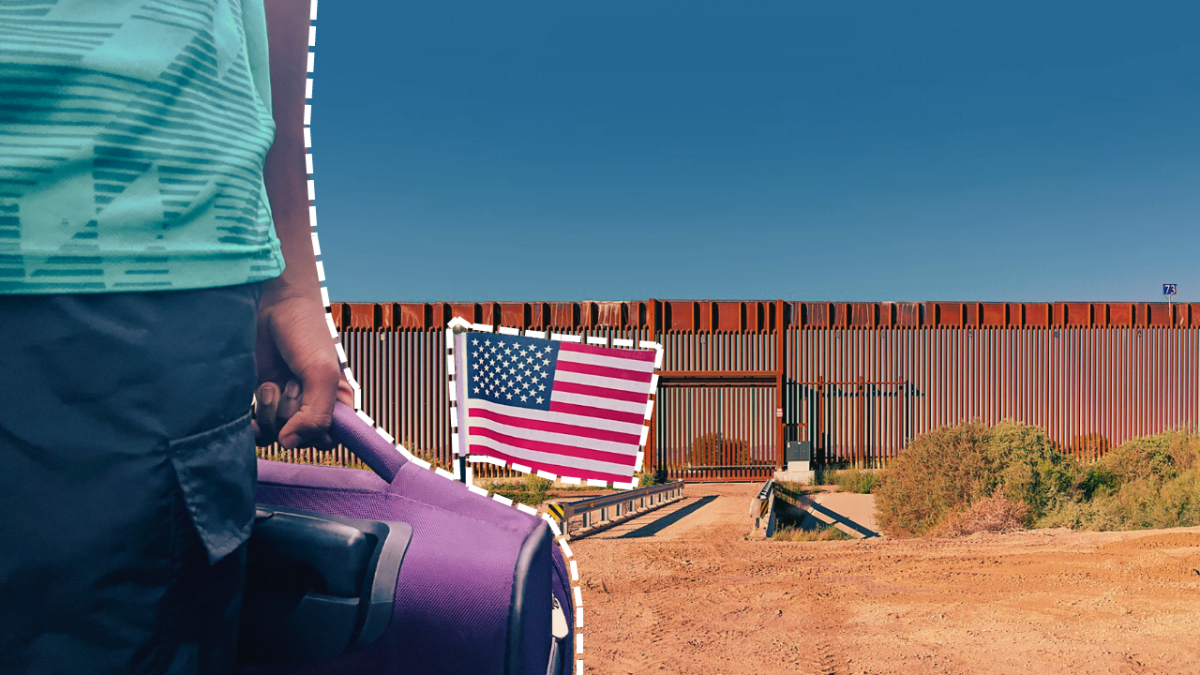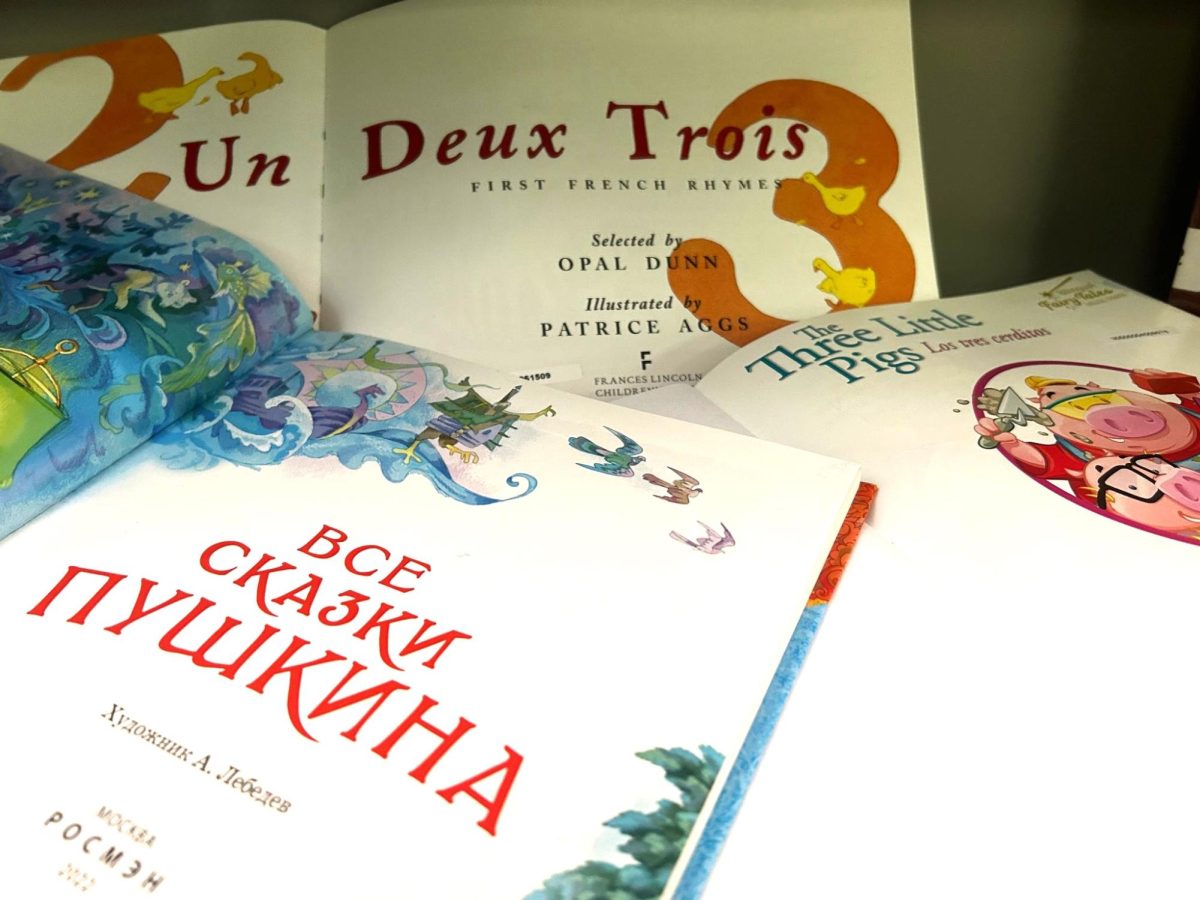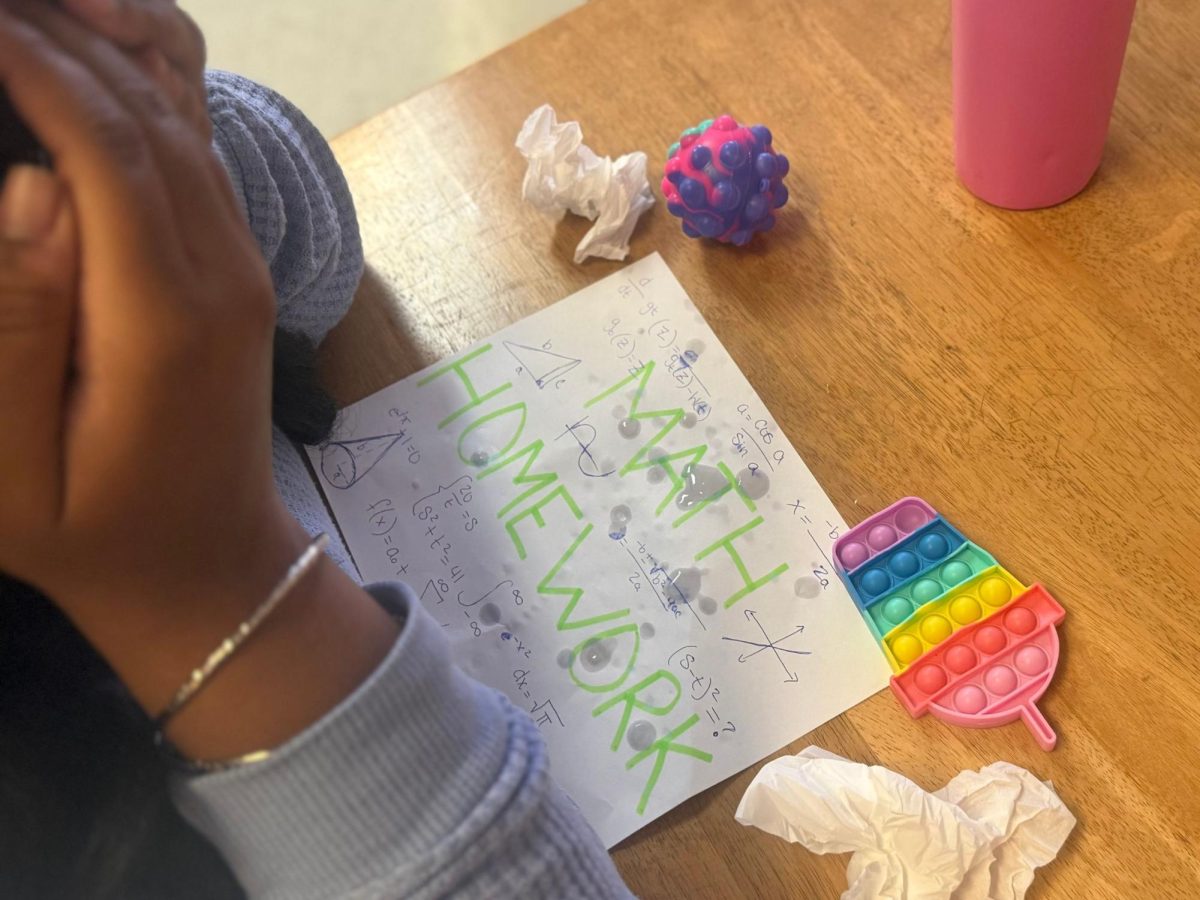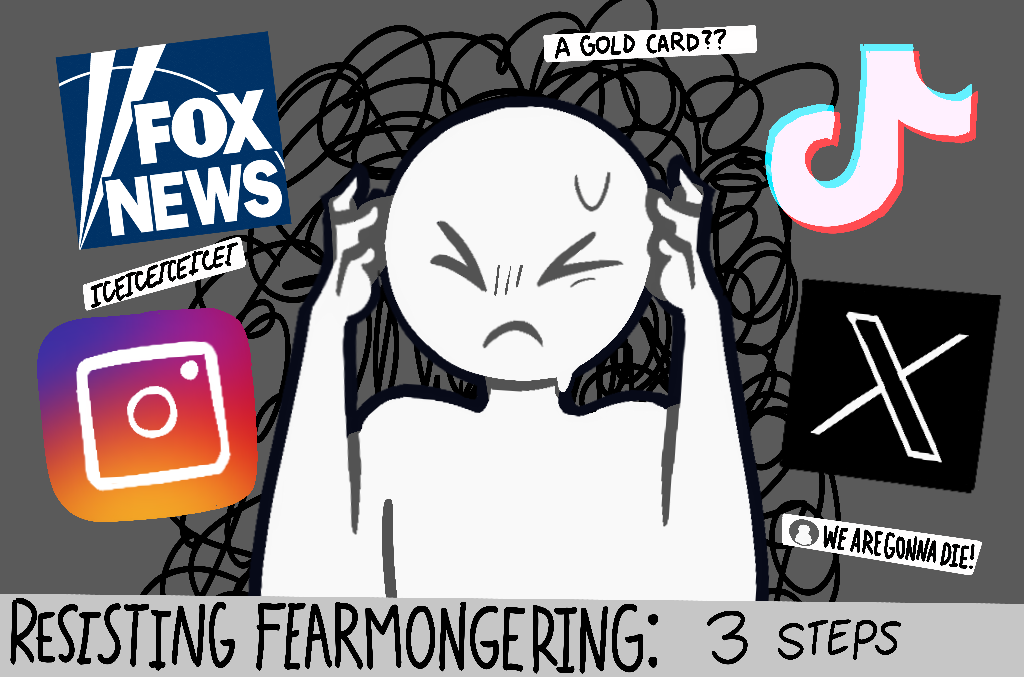January 6, 2021, has become an infamous date in the minds of the American people. This day showcased the effects of former president Donald Trump‘s false claim of a stolen election that led thousands of people to storm the United States Capitol. Supporters of Trump attacked the building to prevent the counting of electoral votes to confirm the now-president Joe Biden as the winner of the 2020 election. The event illustrated the extent of political conspiracy theories directly impacting a democratic institution with the intent of hindering a democratic procedure. Political conspiracies involve ideas that describe a situation or event as the product of a covert scheme by powerful conspirators. Conspiracy theories in United States politics have always existed throughout history, but the support from notable figures in the government and the modern emergence of platforms that promote false theories about the government has created a new age of a conspiracy theory era.
Notable historical events taught in history classes originate from major conspiracy theories, especially ones that incite societal fear. The rise of communism around the world in the late 1910s and 1950s led to the existence of two Red Scares: eras when Americans sensationalized the idea of communists living among them. Both events sprung a series of actions to hunt suspected communists and communist sympathizers within society, but also within the government. Any NC junior taking the NC-offered AP United States History course understands the impact on American culture. Additionally, other groups became associated with communism such as labor groups and people in Hollywood. Wisconsin Senator Joseph McCarthy’s investigations illustrate an infamous example of an attempt to expose suspected communists in the government. McCarthy’s constant use of intimidation tactics and baseless claims citing communist threats within the government resulted in the term McCarthyism, an expression used to explain defaming an individual with unsubstantiated charges. Acts from McCarthy and other government officials showcase a history of lawmakers utilizing their power to act on conspiracies that impact the political culture of society.

Before former President Trump came into office, he led the charge in numerous political conspiracy theories, including promoting false ideas about then-president Barack Obama. He famously pushed the “birther movement”: the false narrative that Obama did not hold natural-born citizenship and, therefore he did not meet the requirement stated in Article II, Section I of the Constitution to become a president of the United States. This idea persisted even after Obama released his birth certificate to the public. During his time in office, Trump continued to push baseless claims regarding the United States government.
Major conspiracies propelled by Trump as president include criticism of government actions during the COVID-19 pandemic and fraud during the 2020 presidential election. The former president encouraged a claim that stated only six percent of reported COVID-19 deaths reported by the US Centers for Disease Control and Prevention “actually” died from COVID-19. US health officials corrected his claims and stated the CDC’s statement meant only six percent of the death count accounted for the individuals who died solely from COVID-19. The overall death count included COVID-19 deaths of people who held pre-existing health conditions.
Before the 2020 presidential election, Trump had repeatedly pushed the notion that expanding the use of mail-in voting would result in a fraudulent election. Experts debunked this claim and no evidence has been found to support his claims regarding mail-in ballots. Despite this, Trump and his supporters intensely believe this notion, believing Biden as an illegitimate victor for the President of the United States. A poll from Monmouth University shows that three in ten Americans believe President Biden won due to election fraud. Trump’s continuous efforts to spread the fraudulent 2020 election conspiracy theory led to movements such as the violent January 6 Capitol attack and “Stop the Steal” gatherings to protest election results and to further distrust in elections and the United States government.
“He [Representative Hank Johnson] was actually in the [House] chamber the day of January sixth. So it was really heart-wrenching for him to actually be there and hear the beating and the guns and the different things that were going on. He was working with other colleagues to try to get a lot of the seniors to safety when all that was going on. He [Johnson] definitely doesn’t agree with Trump or anyone else trying to go in and overturn the [2020] election. The votes are the votes,” a spokesperson from the office of Georgia District four Democratic representative Hank Johnson said.
During the course of his presidency, Trump invited prominent online commentators who promoted these kinds of theories to the White House. In July 2019, Trump held an event called the White House Social Media Summit. The affair hosted notable conspiracy theorists such as Bill Mitchell, who pushed the QAnon conspiracy theory; and Tim Pool, a YouTube personality who pushed the false narrative that former Democratic National Committee staffer Seth Rich leaked hacked emails to WikiLeaks.
As the prominence of conspiracy theories rises, one major conspiracy theory has made its way to the spotlight and infiltrates the political world today: QAnon. The wide-ranging theory at its core voices that President Trump has waged a secret war against elite Satan-worshiping pedophiles in the government. Praising supporters here and there during his term, he minimally involved himself with the QAnon conspiracy theory. Trump has now embraced the theory altogether. On his social media platform, Truth Social, he reposted an image of himself wearing a Q pin and has published posts related to the conspiracy. Through social media, the QAnon conspiracy spread from its origins on 4chan, an online bulletin to mainstream social media platforms such as Facebook and X. The number of QAnon believers continues to rise. According to a poll from the Public Religion Research Institute, the number of QAnon believers has increased from 14 percent in March 2021 to 18 percent in March 2022.
After Trump departed from office, an increased number of lawmakers have worked their way into Congress, sporting conspiracy beliefs about 2020 presidential election fraud and QAnon. Georgia Republican representative Majorie Taylor Greene expressed support for the QAnon theory and in the past has promoted other extreme theories such as describing the events of the 2018 Parkland school shooting as a “planned shooting” and the Sandy Hook shooting as a “staged” event. Despite her controversial background, Greene’s political career forges on as voters in her district reelected her in 2022. Winning her district in 2020 and then reelected in 2022, Colorado representative Lauren Boebert also stands as another QAnon conspiracy theorist to enter the political scene. Bobert has not shied away from her QAnon beliefs, as she consistently supported the movement during her campaign.
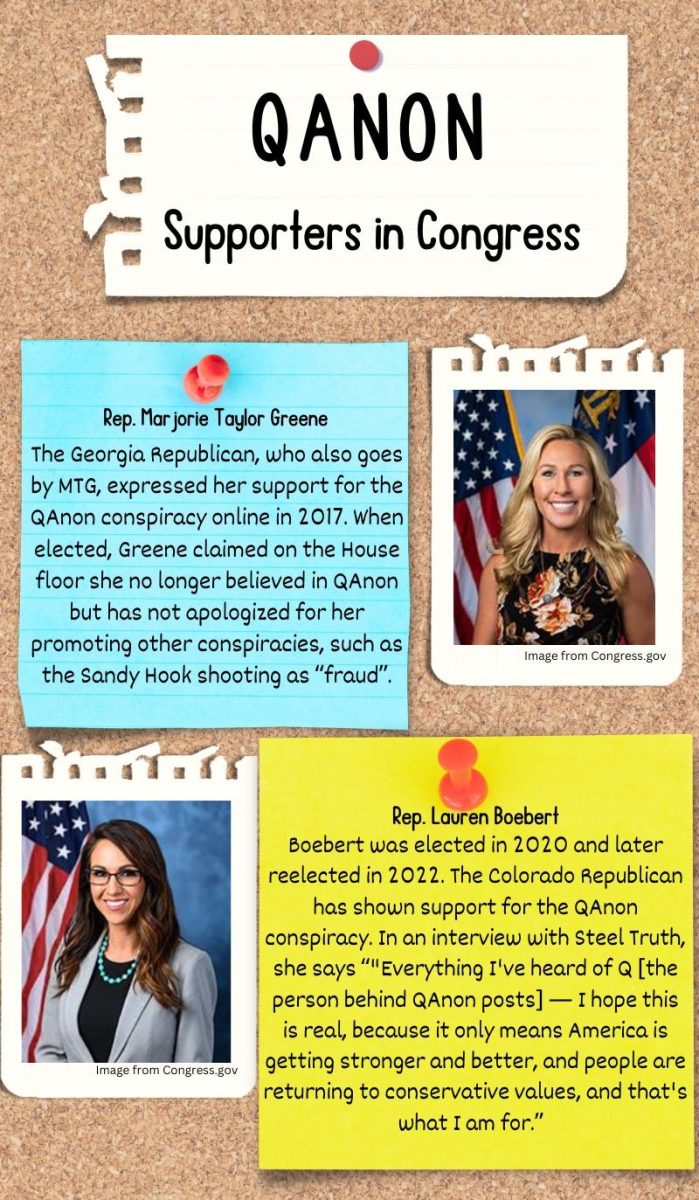
Lawmakers have denied the outcome of the 2020 election and have supported Trump through his efforts to overturn it. In January 2021, 147 House Republicans voted against certifying election results, arguing for allegations of fraud during the election process. Those same lawmakers remain in their respective positions and have risen in ranks within their chambers. California Republican Representative Kevin McCarthy, who voted against certifying the 2020 presidential election results, later held the position of Speaker of the House. However, in 2023, Louisiana Republican representative Mike Johnson, who also rejected certifying election results, replaced McCarthy as speaker.
“We are the final check and balance. The authority rests with us, the United States Congress, the body closest to the American people, right where the founders wanted it. We should do our duty. We should object to and uphold this objection to the Arizona electors,” Ohio Republican representative Jim Jordan said.
A new age of conspiracy-driven politics has arisen within the walls of fundamental government institutions. The prominence of conspiracy theories during Trump’s administration still lingers and continues to spread, potentially creating dangerous situations such as the events of January 6. The existence of conspiracies remains through newly elected government officials who fuel such theories and can continue to affect the actions of the government and the political culture of the United States.
“I think that there needs to be more restrictions on false information inciting danger. Although it is constitutionally supported, freedom of speech can be limited if there is a ‘clear and present danger’ associated with it. The government needs to take fake information more seriously, by either stating suspensions or censures against Congress people who spread factually incorrect information. This should be bipartisan- if someone is lying, it shouldn’t matter what side they’re on,” magnet senior Bianca Orfila-Molinet said.





